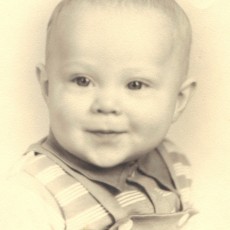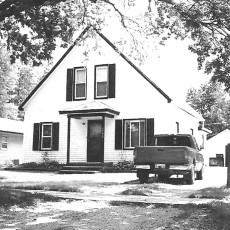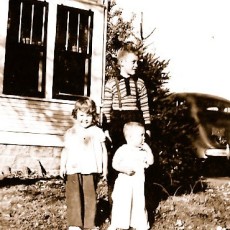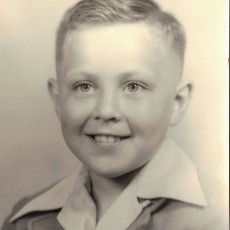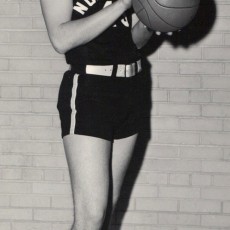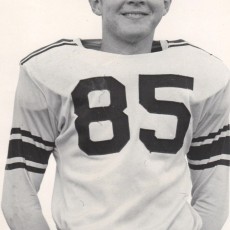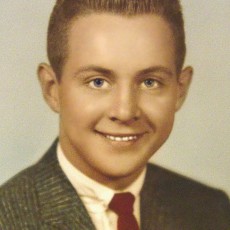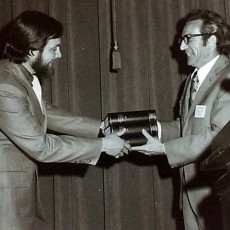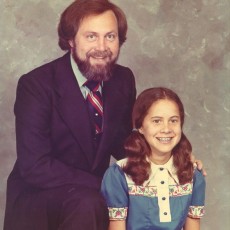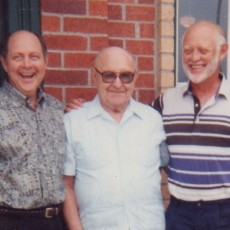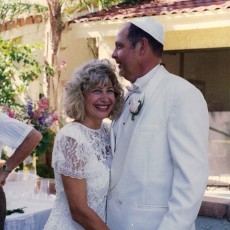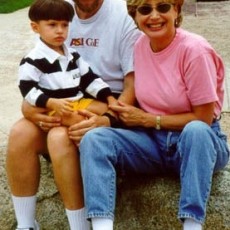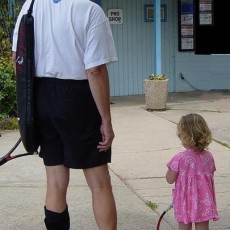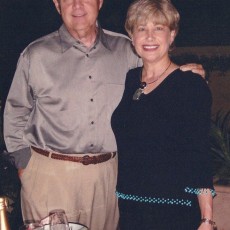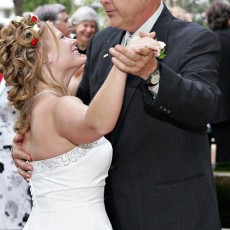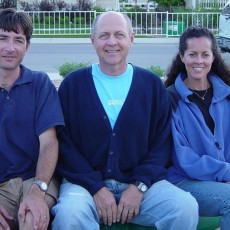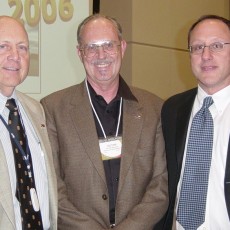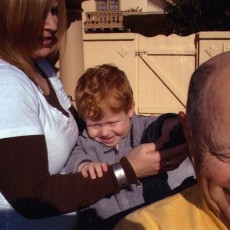Gene Glass
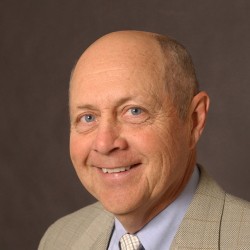
Gene V. Glass is a Research Professor in the School of Education at the University of Colorado at Boulder and Regents’ Professor Emeritus at Arizona State University. Having made substantial contributions to education statistics and educational policy research, his work as a pioneer of meta-analysis has been recognized as one of 40 scholarly contributions that have changed psychology. As past president of the American Educational Research Association and the author of more than a dozen books and nearly two hundred scholarly articles, Dr. Glass now advocates for the expansion of open access to scholarship through free, online publications. Glass is also the founding editor of Education Policy Analysis Archives, the International Journal of Education and the Arts, and Education Review. In 2006, AERA honored Dr. Glass with the Distinguished Contributions for Educational Research award. Twice honored with the Palmer O. Johnson Award (AERA, 1968 and 1970) and a recipient of the Paul Lazarsfeld Award (1984) of the American Evaluation Association, Dr. Glass is most recently the author of the book Fertilizers, Pills, and Magnetic Strips: The Fate of Public Education in America.
For more information, visit Gene Glass’s Website. To learn more about Gene Glass from his family and friends, visit his Reflections. To view photographs from Gene Glass’s personal collection, visit his Photo Gallery.
Curriculum Vitae Suggested readingsVisit the video below to watch a short overview of the interview with Gene Glass. Otherwise, see all four of the full interviews with Gene Glass below.
Video Interviews with Gene Glass:
Born on the outskirts of Lincoln, Nebraska, Dr. Gene Glass remembers his early years with his two siblings in a semi-rural and remote community. Attributing his own cynicism to his father, an often unemployed printer who felt “beaten down” by life during the Great Depression, Glass recounts family life in his grandparents’ dirt floor garage-acknowledging that “we were on the edge of being poor.” Glass admitted he saw little value in education at the time, focusing instead on developing his athletic prowess. First attending college on a chance scholarship, Glass honed his innate intellectual curiosity, studying German and mathematics before graduating with a doctoral degree. Reminiscing about his youth in a small town, Glass recalls a pervasive sense he “wasn’t really anywhere–that everything was someplace else.” Watch this clip to learn more about Dr. Glass’s personal and professional journey as a scholar and educational researcher.
Despite his disdain for dreary weather, Dr. Gene Glass began his distinguished career in central Illinois before “pulling off the coup of all times” by becoming the first faculty member at the University of Colorado, Boulder who had not previously taught in a public school. Embarking on a personal and professional journey marked by rapid advancement within academia and his own commitment to independent thought, Glass recalls cherished memories with colleagues and friends at Arizona State University and as President of the American Educational Research Association-all fashioned between competitive games of tennis. Heralded for his pioneering work on meta-analysis, Glass humbly maintains, “I am not a very good teacher.” View this clip to hear the reflections of graduate students who respectfully disagree with Dr. Glass and colleagues and friends who admire this contrarian for his commitment to discourse.
Cogniscent of his own evolution as an educational researcher, Dr. Gene Glass credits his mentors and critics alike for his professional growth. Once having thought that “the force of all of these studies [in a meta-analysis] just put together and understood” would definitively silence any opposition, Glass readily acknowledges the role of qualitative research in shaping classroom practice. Skeptical of charter schools and high stakes tests, Glass argues that current trends in educational reform are “all smoke and mirrors.” View this clip to learn why Dr. Glass believes Arizona is “the state to watch” in terms of educational policy.
Affectionately referring to his trophies as “hardware,” Dr. Gene Glass is an avid, nationally ranked tennis player. Comparing both quantitative indicators and tennis rankings to the first page of a novel, Glass insists that “they hide more than they reveal.” Crediting both his older brother and undergraduate mentor with profoundly shaping his personal and professional life, Glass admits that he still loves the thrill of seeing his name on a publication. When watching this clip, be prepared to hear Dr. Glass’s favorite curse word and candid assessment of the movie industry.
Amrein-Beardsley, A. (2011, March 8). Inside the Academy video interviews with Dr. Gene Glass [Video files]. Retrieved from /inside-the-academy/gene-glass
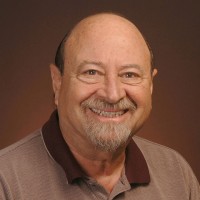
David Berliner
Dr. David Berliner Once fearing Dr. Gene Glass as the “enfant terrible,” Dr. David Berliner readily admits that his feelings for his colleague and friend have “changed a lot” over the years. Keenly aware of Gene’s early ambition and widespread success as a prolific scholar who “out produced everyone in the field in both quantity and quality of his scholarship,” David was pleasantly surprised by the warm and gracious welcome he received from him years later to Arizona State University. Immensely proud of Gene for “his creativity and uniqueness as a scholar,” David admires his critical eye for “slopping thinking”-a benefit to students and others in the field. David even anointed Gene the Associate Dean of Research during his own tenure as the Dean of the College of Education at Arizona State after Gene actively campaigned for his new position. Through their joint efforts, David and Gene propelled the college higher in national rankings while improving the experiences of both faculty and students. Honored for his contributions in meta-analysis, Gene has also been recognized for his pioneering work in open access journals. Having done “everything himself, from writing computer code to editing articles,” Gene’s e-journal Education Policy Analysis Archives is now the premier journal in policy in the United States and Latin America. Possessing “a delightfully quirky mind applied to a very wide and very unique set of interests,” Gene is “very much his own man.”
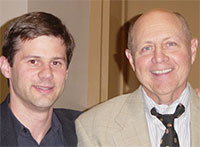
Dr. Casey Cobb
Describing Dr. Gene Glass as his doctoral advisor, mentor, and tennis coach, Dr. Casey Cobb also admits Gene may have done “a little psychotherapy on [him] along the way, too.” At a time when email access and web hosting were a rarity, Casey felt privileged to have a space in his mentor’s office full of Linux-based servers. In between tennis matches, Casey recalls the unique opportunity to “grab lunch with [Dr. Glass] at his favorite haunts and talk shop.” Acknowledged by Gene to be the only graduate student to have ever taken a set from him in tennis, Casey insists his “teacher taught [him] too well.” Characterizing Gene as both brash and a realist, Casey insists Gene can take “anyone on in a battle of wits-and win!” Impressed by his mentor’s extraordinarily high ranking as a doubles player on the senior tennis circuit, Casey insists his mentor’s greatest accomplishment is his lasting influence on his “hidden students.” Admitting that he “still feel[s] like his student and probably always will,” Casey cites the words of Henry Brooks Adams when describing the impact of Dr. Glass on the lives of his students: “A teacher affects eternity; he can never tell where his influence stops.”
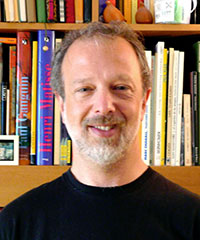
Dr. Gustavo Fischman
Describing Dr. Gene Glass as “one of the most generous, innovative, and civic minded scholars,” Dr. Gustavo Fischman readily cites Gene’s influential and innovative ideas as both appealing and relevant. Characterized by many of his students and colleagues, including Gustavo, as one of the “brightest scholars of his generation,” Gustavo aptly highlights Gene’s kind and generous nature-he is “a very caring intellectual…[and] a superb mentor.” Having repeatedly challenged Gene to matches in both tennis and ping-pong with little success, Gustavo has begun to speculate that “all his talk about tennis is just posturing.” Admired for his pioneering work in meta-analysis, Gustavo also notes Gene’s role in “transforming the field of educational research” through open access to scholarly communication. His efforts to promote digital scholarly publishing generate better forms of communicating scholarly research-a contribution useful to practitioners outside of academia and to the general public.
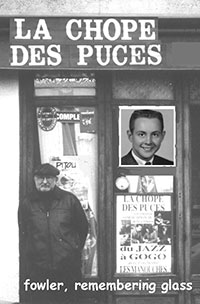
Dr. David Fowler
Dr. David Fowler and Dr. Gene Glass have maintained a life-long friendship begun during their early years as classmates at Lincoln Northeast High School in Lincoln, Nebraska. Recalling Gene’s good sense of humor, David described an incident involving the student council and tennis balls: apparently, Gene brought an innocent package of tennis balls to the meeting for a skit, giving them to the student council president. David recounts the story, pointedly stating: “She [the student council president] thanked him for bringing his balls to school!” As an influential scholar and educational researcher, Gene has garnered a reputation for intellectual tenacity while “respecting without qualification [the] intelligence [of those he] had long admired who were seeing the world far differently….” Grateful for the inspiration and encouragement of his own “hidden teachers,” Gene has left on indelible mark on the lives of his students and colleagues alike.
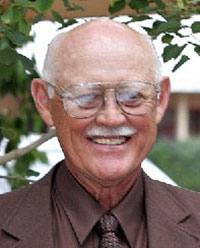
Ed Glass
Described by his brother, Ed Glass, as “a bright and capable student,” Dr. Gene Glass spent his early years with his two siblings in Lincoln, Nebraska. Eight years older than Gene, his brother recalls Gene’s disdain for the smells and foods of farm life in general. Later moving to the first home actually owned by their parents, the Glass children stayed entertained by making fudge or shooting mice-“an interesting life for a future professor.” As a high school student, Gene often enjoyed a hamburger at Shorty’s Café, located next door to his parent’s convenience store. The Glass family ran the convenience store on a shift schedule whereby their father worked at night after returning from his job as a printer. Ed fondly describes Gene as resembling Mr. Glass, “a very bright” man who “worked long hours, invested well, and managed money well and was always there for his family and friends.” Taking great pride in his family, Gene’s motivation to succeed is “driven by the same values” as his father, a man “with only an eighth grade education.”
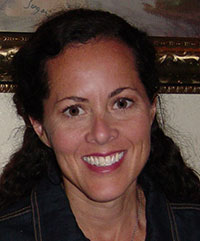
Julie Glass
Characterizing her dad as “a liberal thinker and a hard worker,” Julie Glass most values her father, Dr. Gene Glass, for his generous nature and willingness to give advice. Talking to her father nearly every day, Julie’s close relationship with her dad has profoundly shaped her own values. Recalling her earliest memories with her father, Julie recounts an entertaining story whereby her father attempted to distract his frightened seven year old daughter during a mountainside drive with a tale of nuns and children in a bus careening off the side. Julie jokingly notes, “He is proud of his abilities with kids!” Sharing stories of her father with her own children, Julie adds that he is affectionately known by the entire family as “The Big Guy,” a nickname once given to him by his grandson. Holding their relationship “very dear to my heart,” Julie describes her father as “empathetic in his ideals”-he believes people should be treated fairly and becomes impatient when they are not.
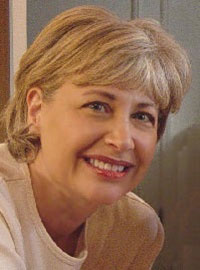
Dr. Sandy Glass
Characterizing her relationship with husband, Dr. Gene Glass, as “joined at the hip and the heart,” Dr. Sandy Glass describes sharing a home office with Gene seven days a week and insists that they are still able to find “plenty of new thoughts to share” at dinner. Described by his wife as funny with a dry sense of humor, Gene once surprised Sandy with a memorable gift: “one year without having a donut for breakfast [at his favorite establishment].” He made it one year to the day! Immensely proud of his tennis prowess, Gene wastes no time in claiming medicinal benefits such as fresh air or fun-he readily admits to loving trophies, saying, “No, it’s all about the hardware.” Confident in his abilities with children, Gene allowed two of his grandsons who were frightened of haircuts to overcome their fear by cutting their grandfather’s hair! “A most generous and loving parent, step-parent, father-in-law, and grandfather,” Gene is “a wonderful role model for adopting skepticism and looking out for the perspective of those with less opportunity in life… .” To his wife and many others in the profession, Gene stands “for those in the public education arena without a voice.”
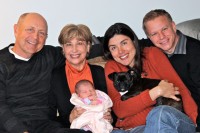
Kyle Rosenthal
When characterizing his relationship with Dr. Gene Glass, Kyle Rosenthal describes Gene as his editor, web developer, comic relief, “and, most importantly… step-father. ” Proud to reveal Gene’s title as a Duncan® Yo-Yo Champion in his youth, Kyle names “Walk the Dog” and “Around the World” as just a few of the many tricks possible on a yo-yo. While Gene’s numerous professional accomplishments include pioneering work in meta-analysis and online scholarly publications, Kyle explains that these achievements “would mean very little if [Glass] wasn’t able to win over the acceptance of his peers and mentors.” Although Kyle describes his step-father as “incredibly self-effacing in regards to his professional work, hold[ing] his colleagues and mentors in highest regards,” Gene has “no problem flaunting his superior physical and mental attributes when it comes to tennis, genealogy research, or website development.” In fact, Gene’s homepage has the #1 Google ranking for the search term “Gene Glass.” Kyle aptly summarizes the feelings of many for his step-father as follows: “The technology required to capture the essence and nature of Gene Glass won’t be available for at least three decades.”
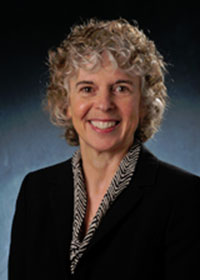
Dr. Lorrie Shephard
A graduate and future faculty member from the University of Colorado, Boulder, Dr. Lorrie Shephard recalls Dr. Gene Glass, her doctoral advisor and colleague, as an “amazingly smart methodologist.” Describing Gene as “keenly aware of the sociology of the field,” Lorrie praises Gene for his ability to keep his eye on the bigger picture-“he never got lost in the methodological weeds.” In fact, “he read Habermas before it was fashionable” and recognized the value of ethnographic methods long before other quantitative methodologists in the field. Displaying a competitive streak long before his days on the tennis court, Gene also enjoyed downhill skiing and crossword puzzles with Lorrie’s husband, Jim. Apparently, Gene challenged Jim to a week-long crossword puzzle contest. After losing the race to complete the daily puzzles, Gene “did a significance test (using a distribution of daily times) and concluded that the difference was not statistically significant!” While the impact of Gene’s work in meta-analysis on “education research and research in health-related fields has been extraordinary…a more significant aspect of his career has been his prescient and persistent devotion to electronic communication and research methods and findings.” Gene is a brilliant contrarian-according to Lorrie, “There are a few things Gene is against just because everyone else is for them!”
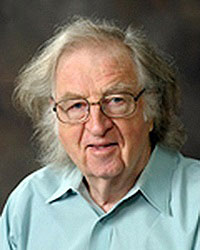
Dr. Robert Stake
Dr. Robert Stake first learned of Gene Glass, “an extraordinary student” from the University of Nebraska, from his instructor in an educational psychology course, Jim Beaird. In his final year of study, Gene expected to use his undergraduate degree to teach German. Joining Dr. Stake’s research team, the young Gene began a professional journey that would later lead him to graduate studies at the University of Wisconsin – Madison. Robert made little effort to hide his disappointment in Gene’s decision to attend school in Wisconsin after he had personally driven him to Princeton to meet the faculty in an effort to sway his decision! Robert joking suggests that Gene could have been “a gift to repay [Princeton] for their kindness” to him. When reflecting on Gene’s influential role in educational research, Robert notes that “meta-analysis, [though] ingenious, [is] not actually so great a human service, but it feeds the modernist’s appetite and sometimes saves the postmodernist’s skin.” Remembering his early years with Gene, Robert acknowledges the accomplishments of his one-time student: “I knew already that we Nebraska measurements people would be unable to keep ahead of Gene.”
